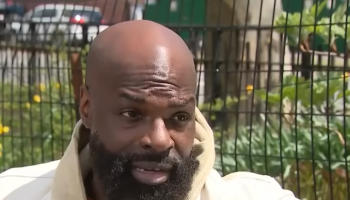The practice of Daylight Savings Time was originally adopted sporadically during World War I to save energy, and was later adopted nationwide under the Uniform Time Act of 1966.
Two Ohio lawmakers have proposed to put an end to Daylight Savings Time. The Republican senators introduced a bill that would permanently stop Ohioans from moving the clocks forward and back twice a year.
Senator Kristina Roegner and Senator Bob Peterson introduced Senate Bill 119 Tuesday. The bill, known as The Ohio Sunshine Protection Act would make Ohio completely exempt from time changes across the entire state.
The bill would also forbid any public agency or local government from observing the time-change event, which shifts clocks one hour forward in the spring and then back again in the fall.
Senators Lou Terhar and Joe Uecker, of the Cincinnati area, have signed on as co-sponsors. Senate Bill 119 would require approval from the entire House and Senate, a signature by the governor and federal approval for it to go into effect.
Senator Roegner took to Facebook to gather opinions about the topic and received a ton of support in favor of ending DST. “I was really, really shocked at the level of interest in this topic,” she said.
There are many varying views on the pros and cons of DST. Roegner and Peterson noted in a memo, “with the proliferation of air conditioners and computers in our lives today, the savings generated through a reduction in the usage of artificial lighting no longer justify the biannual disruption in our lives caused by DST.”
The memo also cites research that suggests a link between time changes and on-the-job accidents, due to sleep disruption caused by the time change. A 2009 study by Michigan State University researchers concluded that “schedule changes, such as those involved in switches to and from Daylight Saving time, place employees in clear and present danger.”
Two states in the U.S., Arizona and Hawaii, have never observed Daylight Saving Time. They remain on Standard Time throughout the year. Indiana waited until 2006 to adopt DST via a push championed by then-Governor Mitch Daniels. Daniels, a Republican, believed being out of sync with the rest of the Eastern Time Zone was confusing to outsiders and hurt the state’s economy.
Florida recently approved adopting Daylight Saving Time year-round, but the measure has languished in the U.S. Congress, whose approval is needed.
Senator Roegner has acknowledged that it may be confusing or inconvenient if Ohio changes their time, but neighboring states don’t. “At the end of the day, we’ll have to weigh out the pros and cons,” she said.
President Donald Trump tweeted earlier this month and made clear where he stands on the subject.
Source: NBC4i, Cleveland.com
Is This The End Of Daylight Savings Time?! was originally published on mycolumbuspower.com















